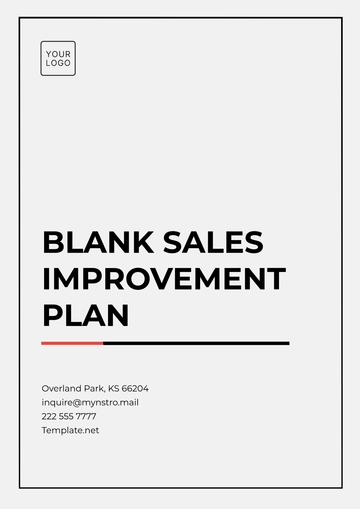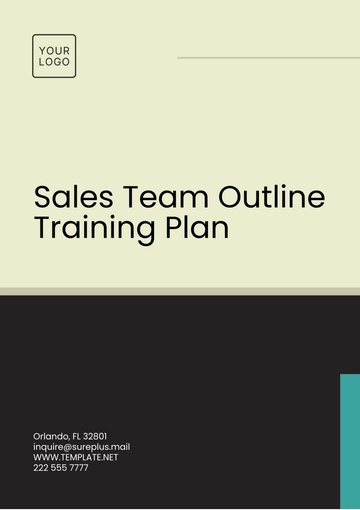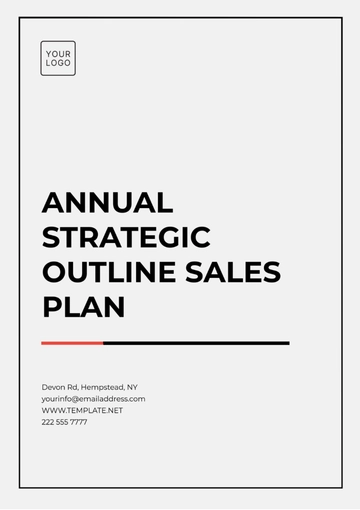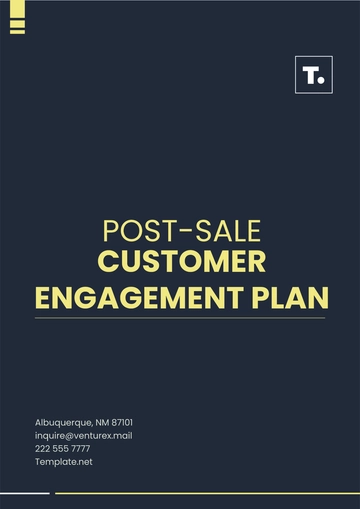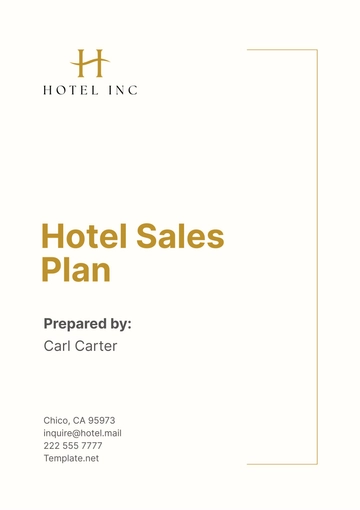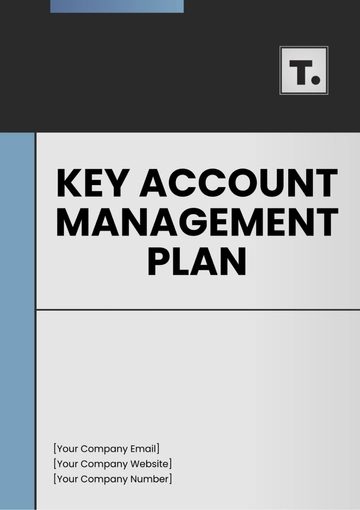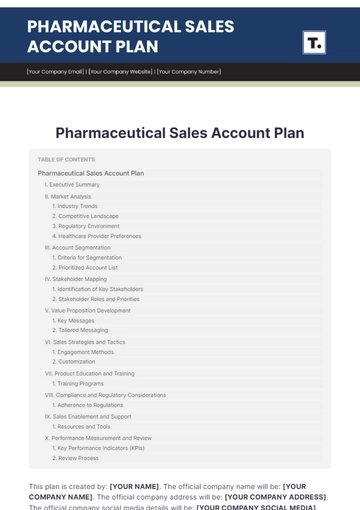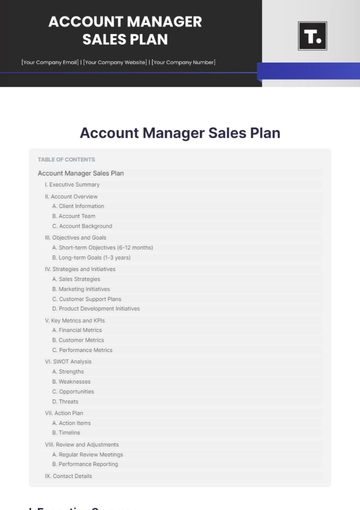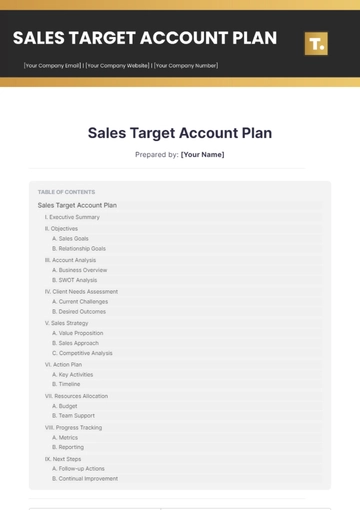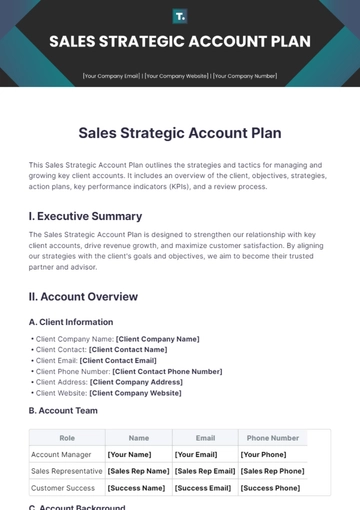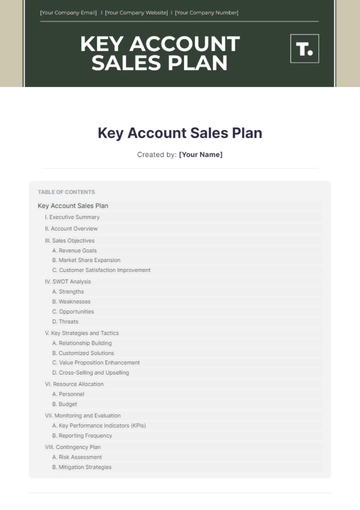Free ;;Sales Long-term Client Relationship Plan

In the fast-paced world of business, where opportunities and challenges constantly evolve, one thing remains constant—the paramount importance of building and nurturing lasting client relationships. This plan is designed to guide us in our journey toward achieving long-term success through strong client connections.
The significance of client relationships cannot be overstated. [Your Company Name] clients are not just business partners; they are the lifeblood of our organization. A satisfied and loyal client is not just a revenue source but an advocate and a testament to our commitment to excellence. We are here to set the stage for a presentation that will transform the way we approach and manage our client relationships, laying the foundation for lasting partnerships.
Client Segmentation
Understanding [Your Company Name] clients is the cornerstone of our success. By dividing our client base into different segments based on demographics, preferences, and needs, we can tailor our services to their unique requirements. This approach ensures that we provide the right solutions to the right clients at the right time. Let's delve into why client segmentation is essential:
Importance of Understanding Your Clients: Knowing our clients inside out enables us to anticipate their needs, align our offerings, and provide the best value. It fosters trust, loyalty, and mutual understanding.
Client Segments: We have categorized our clients into distinct segments, each with specific characteristics. For example, let's consider the "Client Segmentation - [Client Company Name]":
Segments | Details |
|---|---|
Segment A: Enterprise Clients |
|
Segment B: Small and Medium Enterprises (SMEs) |
|
Segment C: Startups and Innovators |
|
Client Communication
Effective communication is the linchpin of any successful client relationship. It is not just about sending emails and making calls; it's about engaging in timely and relevant conversations that foster trust and collaboration. Let's explore our approach to client communication:
Communication Channels: We utilize a variety of communication channels to stay connected with our clients. These include emails, phone calls, in-person meetings, video conferences, and even social media. By diversifying our channels, we ensure that we are always within reach, meeting clients where they are most comfortable.
Importance of Timely and Relevant Communication: Timeliness is essential. Our clients expect prompt responses to their inquiries and concerns. Additionally, we understand the significance of relevance in communication. We tailor our messages to address their specific needs and pain points.
Case Study: Effective Communication with [Client Company Name]: Let's take a moment to explore a case study. [Client Company Name], a long-time client, was experiencing challenges with our service. Through proactive and relevant communication, we addressed their concerns swiftly, offering customized solutions that not only resolved their issues but also deepened our relationship. This case study demonstrates how effective communication can turn challenges into opportunities for growth and loyalty.
Relationship Building Strategies
In this section, we delve into the heart of client relationship management - the strategies that not only build trust and rapport but also create lasting emotional connections. The following points will guide you through the process:
Points | Details |
|---|---|
Demonstrating Empathy | Show genuine interest in your clients' needs and concerns. Understand their challenges and goals. For instance, if [Client Company Name] is facing a specific challenge, your team could provide tailored solutions that address their pain points. |
Personalized Interactions | Tailor your interactions to the individual preferences of your clients. Make them feel valued and special. |
Regular Follow-ups | Consistency is key. Maintain regular contact without being intrusive. Update clients on relevant industry trends or provide them with useful information. This approach shows your commitment to their success. |
Transparency | Be open and honest about your products or services. Admit mistakes if they occur and work towards solutions together. This integrity will foster trust. |
Anticipating Needs | Proactively identify your client's future needs. Suggest new offerings or improvements that align with their long-term goals. |
Client Feedback and Evaluation
Client feedback is a priceless source of information that can guide your business to success. Here's how to leverage it:
Significance of Feedback: Client feedback is not just about fixing problems; it's about improving the client experience, building loyalty, and staying competitive. It demonstrates your commitment to their satisfaction.
Methods for Collection: Implement a multi-faceted approach to collecting feedback. This may include regular surveys, feedback forms, direct interviews, and monitoring social media mentions. For instance, "Client Satisfaction Survey at LMN Enterprises" details a case where structured surveys provided invaluable insights.
Feedback Analysis: Don't just collect data; analyze it to derive actionable insights. Spot trends, areas for improvement, and success stories. Use this analysis to make informed decisions and fine-tune your services.
Timely Response: Respond to feedback promptly, whether it's positive or negative. Show appreciation for positive feedback and resolve issues raised by negative feedback with professionalism. Clients appreciate being heard and valued.
Client Retention
Client retention is the lifeblood of any business. It's about maintaining a long-lasting relationship with your clients. Here's how to ensure that:
Strategies | Details |
|---|---|
Loyalty Programs | Establish loyalty programs that reward long-term clients for their commitment. This could include exclusive discounts, early access to new products, or personalized services. |
Discounts and Exclusive Offers | Offer clients incentives, such as discounts or exclusive access to promotions. These perks not only save them money but also make them feel appreciated. |
Exclusivity | Consider providing exclusive access to premium content or services for your most loyal clients. Make them feel like VIPs, and they'll be more likely to stay with your company. |
Success Story | Maintaining Long-term Relationships with DEF Industries: Sharing a success story can be inspiring. Explain how DEF Industries has remained a client for years due to your commitment to their success, exclusive offers, and outstanding service. |
Crisis Management
Crisis management is a critical component of maintaining long-term client relationships. It is essential to address any issues or disputes promptly to prevent them from escalating and potentially damaging the relationship. Timely resolution not only shows your commitment to your clients but also prevents negative sentiments from taking root.
[Your Company Name] crisis management plan is a structured approach that outlines how we respond to challenges, disputes, or unexpected issues in our client relationships. This plan encompasses a clear hierarchy of decision-makers, communication protocols, and a set of predefined steps for addressing problems effectively. It ensures that our team responds swiftly, professionally, and with the best interests of the client in mind.
Example Scenario:
"Resolving Disputes with [Client Company Name]."
Imagine a situation where [Client Company Name], one of our long-term clients, encountered an issue with our services. Instead of ignoring the problem, our crisis management plan swung into action. We immediately assigned a dedicated account manager to address their concerns. Open and transparent communication was established, and a resolution plan was devised and implemented swiftly. By promptly addressing the issue, we not only salvaged the relationship but also strengthened it, earning the trust and appreciation of [Client Company Name].
Long-term Growth
Long-term relationships with clients present a wealth of opportunities for sustainable growth. As we deepen our connections with clients over time, we also uncover new avenues for expansion and revenue generation. Clients who have trusted our services are more likely to explore further offerings, making long-term relationships a valuable asset for both parties.
Within these enduring relationships, there exist valuable opportunities for upselling and cross-selling. Upselling entails presenting clients with advanced or premium versions of their current services, while cross-selling involves introducing them to complementary products or services. Both strategies serve not only to increase our revenue but also to provide clients with holistic solutions that enhance their satisfaction and overall experience.
Our case study with [Client Company Name] is a prime example of the potential for long-term growth. What started as a basic service agreement has flourished into a multifaceted partnership. [Client Company Name] initially relied on our core services, but through proactive relationship management, we identified and addressed additional needs. Today, they not only benefit from their core services but also from a range of supplementary solutions we offer. This evolution illustrates the remarkable growth potential within long-term client relationships.
Conclusion
This Sales Long-term Client Relationship Plan encapsulates the strategies and principles that underpin successful client relationship management. We've discussed the importance of client segmentation, effective communication, relationship building, feedback collection, client retention, crisis management, and long-term growth opportunities. These aspects collectively lay the foundation for enduring and fruitful client relationships.
The enduring benefits of effective client relationship management cannot be overstated. Not only do strong, long-term relationships lead to increased client satisfaction and loyalty, but they also create fertile ground for revenue growth, referral business, and mutual success. By nurturing these relationships, we secure our position as a trusted partner for our clients, ensuring mutual prosperity in the long run.
It is now time to put this plan into action. [Your Company Name] encourage every member of our team to embrace these strategies and execute them diligently. Our success in cultivating and maintaining long-term client relationships will be a testament to our commitment to excellence, our clients' trust, and our dedication to shared growth. Together, we embark on a journey of building stronger, more enduring connections with our clients, which will undoubtedly lead to mutual prosperity and long-term success.
- 100% Customizable, free editor
- Access 1 Million+ Templates, photo’s & graphics
- Download or share as a template
- Click and replace photos, graphics, text, backgrounds
- Resize, crop, AI write & more
- Access advanced editor
Secure and nurture long-term client relationships with the Sales Long-term Client Relationship Plan Template from Template.net. This fully editable and customizable template is your roadmap for developing and maintaining lasting partnerships. Tailor your approach to meet the unique needs and expectations of each client, by editing this template with an Ai Editor Tool. Elevate your client relationship management and build the foundation for successful, enduring connections with this invaluable template.
You may also like
- Finance Plan
- Construction Plan
- Sales Plan
- Development Plan
- Career Plan
- Budget Plan
- HR Plan
- Education Plan
- Transition Plan
- Work Plan
- Training Plan
- Communication Plan
- Operation Plan
- Health And Safety Plan
- Strategy Plan
- Professional Development Plan
- Advertising Plan
- Risk Management Plan
- Restaurant Plan
- School Plan
- Nursing Home Patient Care Plan
- Nursing Care Plan
- Plan Event
- Startup Plan
- Social Media Plan
- Staffing Plan
- Annual Plan
- Content Plan
- Payment Plan
- Implementation Plan
- Hotel Plan
- Workout Plan
- Accounting Plan
- Campaign Plan
- Essay Plan
- 30 60 90 Day Plan
- Research Plan
- Recruitment Plan
- 90 Day Plan
- Quarterly Plan
- Emergency Plan
- 5 Year Plan
- Gym Plan
- Personal Plan
- IT and Software Plan
- Treatment Plan
- Real Estate Plan
- Law Firm Plan
- Healthcare Plan
- Improvement Plan
- Media Plan
- 5 Year Business Plan
- Learning Plan
- Marketing Campaign Plan
- Travel Agency Plan
- Cleaning Services Plan
- Interior Design Plan
- Performance Plan
- PR Plan
- Birth Plan
- Life Plan
- SEO Plan
- Disaster Recovery Plan
- Continuity Plan
- Launch Plan
- Legal Plan
- Behavior Plan
- Performance Improvement Plan
- Salon Plan
- Security Plan
- Security Management Plan
- Employee Development Plan
- Quality Plan
- Service Improvement Plan
- Growth Plan
- Incident Response Plan
- Basketball Plan
- Emergency Action Plan
- Product Launch Plan
- Spa Plan
- Employee Training Plan
- Data Analysis Plan
- Employee Action Plan
- Territory Plan
- Audit Plan
- Classroom Plan
- Activity Plan
- Parenting Plan
- Care Plan
- Project Execution Plan
- Exercise Plan
- Internship Plan
- Software Development Plan
- Continuous Improvement Plan
- Leave Plan
- 90 Day Sales Plan
- Advertising Agency Plan
- Employee Transition Plan
- Smart Action Plan
- Workplace Safety Plan
- Behavior Change Plan
- Contingency Plan
- Continuity of Operations Plan
- Health Plan
- Quality Control Plan
- Self Plan
- Sports Development Plan
- Change Management Plan
- Ecommerce Plan
- Personal Financial Plan
- Process Improvement Plan
- 30-60-90 Day Sales Plan
- Crisis Management Plan
- Engagement Plan
- Execution Plan
- Pandemic Plan
- Quality Assurance Plan
- Service Continuity Plan
- Agile Project Plan
- Fundraising Plan
- Job Transition Plan
- Asset Maintenance Plan
- Maintenance Plan
- Software Test Plan
- Staff Training and Development Plan
- 3 Year Plan
- Brand Activation Plan
- Release Plan
- Resource Plan
- Risk Mitigation Plan
- Teacher Plan
- 30 60 90 Day Plan for New Manager
- Food Safety Plan
- Food Truck Plan
- Hiring Plan
- Quality Management Plan
- Wellness Plan
- Behavior Intervention Plan
- Bonus Plan
- Investment Plan
- Maternity Leave Plan
- Pandemic Response Plan
- Succession Planning
- Coaching Plan
- Configuration Management Plan
- Remote Work Plan
- Self Care Plan
- Teaching Plan
- 100-Day Plan
- HACCP Plan
- Student Plan
- Sustainability Plan
- 30 60 90 Day Plan for Interview
- Access Plan
- Site Specific Safety Plan


